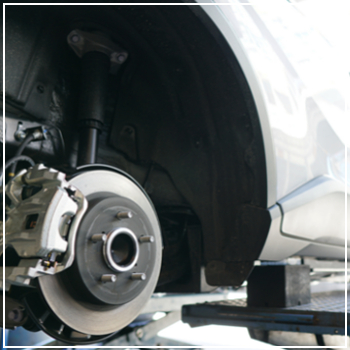 Drivers in Connecticut are required to get an emissions test every two years. The results are sent to the DMV, and depending on the state, some vehicles may need annual testing or have it combined with a safety inspection. Emissions tests check how much pollution your car's exhaust system releases, aiming to reduce smog and improve air quality.
Drivers in Connecticut are required to get an emissions test every two years. The results are sent to the DMV, and depending on the state, some vehicles may need annual testing or have it combined with a safety inspection. Emissions tests check how much pollution your car's exhaust system releases, aiming to reduce smog and improve air quality.
OBD Check vs. I/M240 Test
In many states, vehicles made from 1996 onward must undergo an Onboard Diagnostic (OBD) test, while older models from 1981 to 1995 require an I/M240 dynamometer test. The OBD test connects to your car’s computer to check emissions-related systems, while the I/M240 simulates driving conditions to measure exhaust emissions. Both tests determine if your vehicle passes or fails, and knowing what causes failure can help you avoid problems.
Old Motor Oil
Regular oil changes keep your engine running smoothly and reduce harmful emissions. Over time, old oil breaks down and produces more hydrocarbons, which can be picked up during an emissions test. If you've been putting off an oil change, this could be a reason for a failed test. Replacing the oil is often all that's needed to pass.
Too Much Fuel
An improper air-to-fuel ratio can lead to excess fuel in the exhaust system, which affects emissions test results. Common causes include faulty fuel injectors, malfunctioning sensors, or issues with the mass airflow sensor. These problems not only cause test failures but can also lead to poor performance, reduced power, and even engine damage over time.
Spark Plug Problems
Spark plugs play a key role in the combustion process. Worn or damaged plugs can misfire, leading to incomplete combustion and higher emissions. This can result in a failed test and difficulty starting the car. Regular maintenance and timely replacement are essential to keep things running smoothly.
Loose Gas Cap
A loose or damaged gas cap allows fuel vapors to escape, which can trigger a failed emissions test. It's a simple fix—just replace the cap with a new one that fits securely. Don’t underestimate how important this small part is for both emissions compliance and fuel efficiency.
Faulty EVAP System
The Evaporative Emission Control System (EVAP) keeps fuel vapors from escaping into the atmosphere. Issues like cracked hoses or a faulty purge valve can prevent it from working properly. Fixing these problems is crucial to passing emissions tests and keeping your car running efficiently.
Dirty Air Filter
A clogged air filter restricts airflow to the engine, causing it to run rich and emit more pollutants. Replace your air filter at least once a year or every 12,000 miles to ensure optimal performance and avoid failing an emissions test.
Check Engine Light
If your check engine light is on, it could signal an issue with your emissions system. Common causes include a faulty oxygen sensor or problems with the exhaust system, such as a worn catalytic converter. Other signs of a problem include poor fuel economy, strange noises, or a sulfur smell. If your car fails the test, don’t worry—our certified team can help diagnose and repair the issue. Contact us today to schedule an appointment and get your car back on the road safely.
Water filters are essential components in water filtration systems, helping to remove impurities and contaminants from water to ensure clean and safe drinking water. There are various types of water filter cartridges available, including PP melt blown filters, PP pleated filters, string wound filters, pool filters, stainless steel pleated filters, titanium rod filters, and stainless steel sintered filters.
PP melt blown filters are made from polypropylene material and are effective in removing sediment, dirt, and other particles from water. PP pleated filter cartridges have a larger surface area for filtration and are suitable for removing finer particles from water. Wound filter cartridges are made by winding a string or yarn around a core, providing efficient filtration for sediment and other contaminants.
Pool filters are specifically designed for swimming pools and spas, helping to maintain clean and clear water for recreational use. Stainless steel pleated filters are durable and long-lasting, suitable for high-temperature and high-pressure applications. Titanium Rod Filter cartridges are corrosion-resistant and ideal for filtering aggressive chemicals and liquids.
Stainless steel sintered filters are made by sintering stainless steel powder to create a porous structure for filtration. They are suitable for high-temperature and high-viscosity applications, providing efficient filtration for a wide range of liquids and gases. Overall, water filter cartridges play a crucial role in ensuring clean and safe drinking water for households, industries, and commercial establishments.
PP melt blown filter, PP pleated filter, string wound filter, pool filter, stainless steel sintered filter
Xinxiang Zhike Machinery Equipment Co.Ltd , https://www.zhikefilter.com